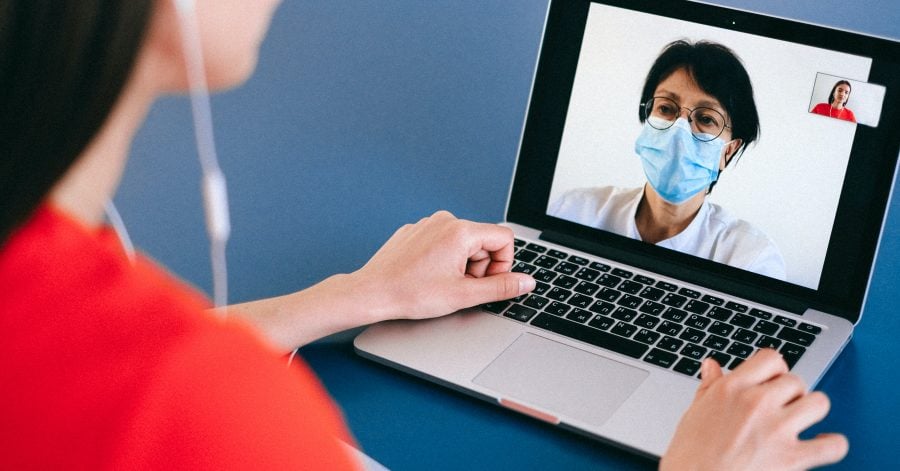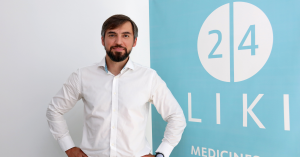The Romanian Medtech and Healthtech startup environment is dynamic. In the last five years, there has been a gradual digital growth that is starting to draw more attention. During the 2020 Global Startup Summit, Cluj-Napoca became the project leader in healthcare innovation and artificial intelligence in the European area. This was the first step in creating new opportunities for the ecosystem.
The market is evolving in different niches. Ionut Patrahau, SeedBlink, and Brain Institute co-founder, has divided the startups in the field into four types. First are the ones digitizing the transmissions of medical information. Then are those employing big data analysis used in diagnosis. Next, come digital service integrators and the prevention projects.
The Romanian startups address different targets, from patients and their families to professionals and institutions. A report shows there have been over €3.5M invested in over 15 funding deals in 2020 alone. One trend that stands out in 2021 is digitalization with the help of telehealth tools. These have accelerated in 2020 and might double in numbers this year.
Restrictions pushed digital to take a leap
In Romania, COVID-19 restrictions allowed health professionals to use telemedicine for remote consulting. It was allowed only for a short time as video service is not regulated by the country’s law.
This period was also a push forward for AI in the radiography sector. The Romanian company, XVision, developed an online app automatizing tomography and a lung x-ray analysis. In 2020, two hospitals used the platform to detect coronavirus.
The Romanian Healthtech industry’s digital tools
In 2019, over 70% of the Romanian population used the internet. Out of this number, 30% searched online for the answers to medical questions. Digital nomads look for information about diseases, job offers, or doctors’ reviews. Humans are going digital, so companies are also shifting towards the online universe to offer solutions for a better tomorrow.
SanoPass is a startup that aims to digitize, connect and integrate prevention medical services. The project is a MedTech leader in the Romanian market with over 850 clinics and 10.000 specialists onboard. The company raised €800K on Seedblink to continue developing the platform. SanoPass incorporates telemedicine, psycho-emotional counseling, electronic medical records, insurers, and pharmacies.
“The year 2021 is the year in which we set out to expand both the service and the regional areas. Our plans include the development of gyms and a nutrition network so that we have the opportunity to offer a complete medical prevention service. Among the most ambitious projects is the integration of an AI solution, but also the expansion of SanoPass internationally, in Moldova and Bulgaria,” shared Andrei Vasile, co-founder of SanoPass, with The Recursive.
Another tool is MEDICAI, which helps patients and doctors collaborate. They use a safe online platform to share confidential information. The company addresses both users and clinics or hospitals to save time and money.
While MEDIjobs is the first medical recruiting platform in Romania. It has been connecting companies with specialists for the past five years. The project uses in-house software which aids both B2C and B2B users find the perfect match for a successful collaboration.
The global doctor visit market
A global market report predicts video consultations to grow 5% in 2021, compared to 1% in 2019, all due to the pandemic. This translates into 400 million meetings and over €20B in revenue. The report details the trend may evolve into medical gadgets, like smartwatches or digital reality headsets. Accessories that could help professionals track patients remotely.
The data also shows the user’s market isn’t ready to commit to this idea. Over half of the population doesn’t think telemedicine will apply to all medical issues. They also feel they won’t get the same attention virtually compared to face-to-face interaction.
The trend has the potential of revolutionizing the medical system. For starters, it can sort out urgent cases from regular, informative, checkups. Some areas which can take advantage of the system are general medicine, nutrition, gynecology, dermatology, and psychology.
Telemedicine Romanian startups of 2021
The 2021 prognosis is that many companies will develop telemedicine amongst their services. For example, Docbook is a platform that allows users access to over 6000 doctor’s schedules to see which one fits them best. The project received funding of €600K in 2020 to develop and offer video calls in different niches.
A platform that is getting ready to receive a new round of investment of €200K via Seedblink is Recomedica*. The startup offers fast recommendations remotely. This is a triage method to prevent over-populating hospital waiting areas.
Telios Care is the third startup that has raised €200K in 2020 to keep developing telemedicine. The company offers 24/7 online professional care for different specialties. While Medic Chat allows users access to health advice from doctors in their database. They are also getting ready to receive a new funding round of over €250K via Seedblink.
The last company is PEDITEL. It is the only free, non-stop, pediatric telephone support service in Romania. For 2021 the developing plans include a mobile app that offers video calls and keeping a personalized file updated.
“Telemedicine, a field in which we were pioneers, democratizes access to health care, reduces waiting times, travel and distances. By 2023, we aim to reach 250,000-300,000 users, 40-50 doctors, and 3,000 Premium subscribers monthly. Next year we want to add to the application a component of international training and education in pediatrics, with the participation of international experts,” shared Cristina Grigore, Fundatia Parinti din Romania (Romanian Parents Foundation) executive director, foundation which owns PEDITEL.
*Later edit: Recomedica raised in February of 2021 funding on Seedblink.







